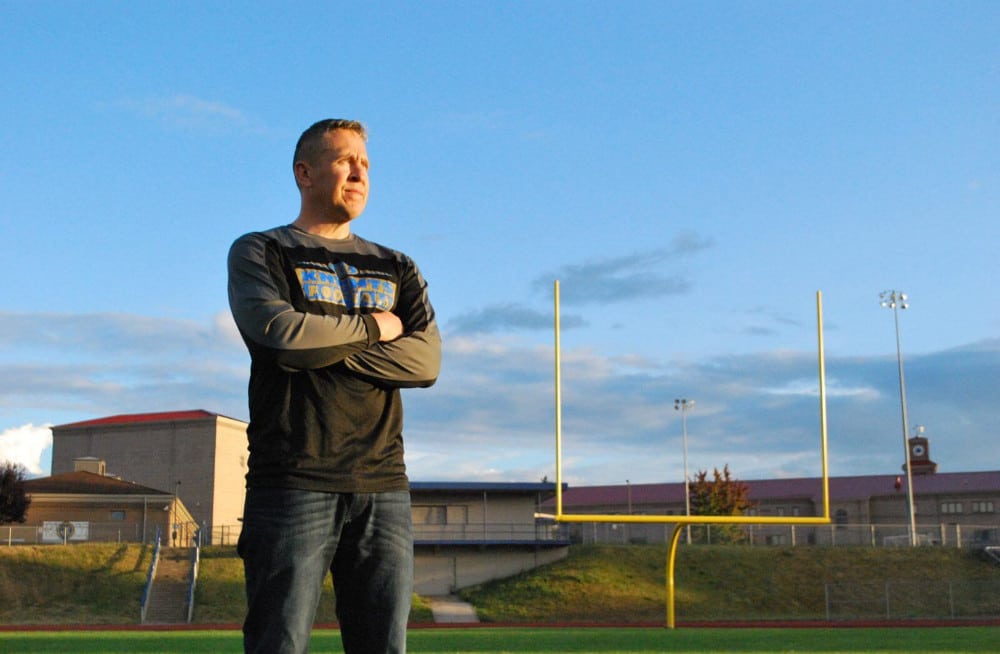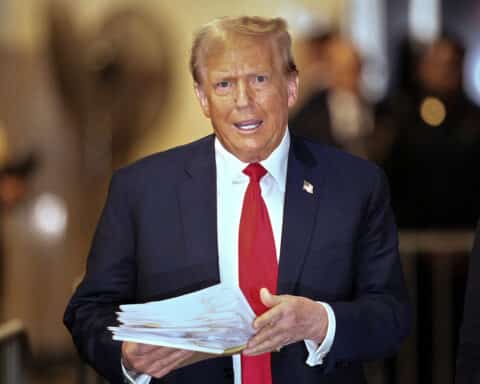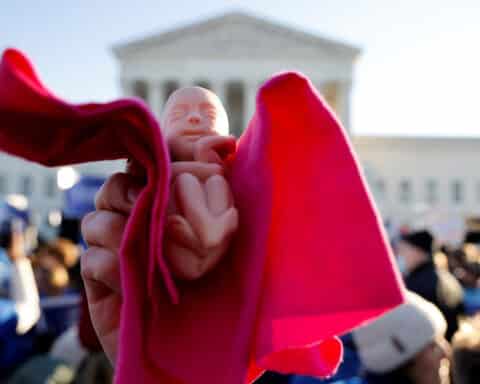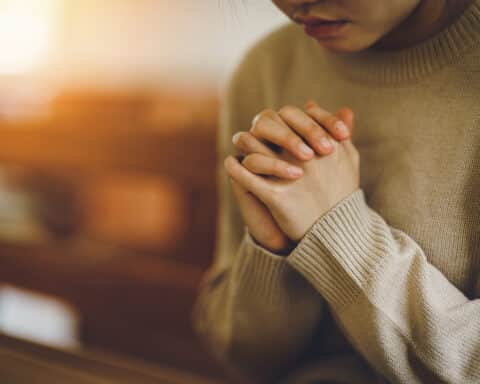The Supreme Court ruled 6-3 that a high school football coach who lost his job because he knelt on the field following games to say a silent prayer had a constitutional right to pray as he did under the First Amendment’s guarantees of free speech and free exercise of religion.
“The Constitution and the best of our traditions counsel mutual respect and tolerance, not censorship and suppression, for religious and nonreligious views alike,” Justice Neil Gorsuch wrote in his majority opinion reversing the 9th U.S. Circuit Court of Appeals.
Joining Gorsuch were Chief Justice John Roberts and Justices Clarence Thomas, Samuel Alito, Brett Kavanaugh and Amy Coney Barrett. In a now-familiar pattern, the court’s three liberal members — Justices Stephen Breyer, Sonia Sotomayor and Elena Kagan — dissented.
The June 27 decision in the case (Kennedy v. Bremerton School District) is the latest in a series of cases in recent years in which the Supreme Court has decided disputes in favor of religious liberty and in opposition to attempts to limit or suppress it.
As that suggests, a notably friendly view of the First Amendment’s free exercise clause has become a distinctive feature of the Supreme Court since Justices Gorsuch, Kavanaugh and Barrett joined Chief Justice Roberts and Justices Thomas and Alito on the bench. Needless to say, this is a development viewed with disapproval by critics who want to keep the wall of separation between religion and the state as high and forbidding as possible.
And this time the free exercise side of the argument came out on top.
The case concerned a Bremerton, Washington, public high school assistant football coach named Joseph Kennedy, a practicing Christian who made it a practice to kneel and “give thanks through prayer at the end of each game.” Initially, Kennedy knelt at mid-field and prayed silently by himself, but as time passed, more and more of his players joined him.
Trouble arose when a parent complained that his son, an atheist who was a member of the team, felt he was under pressure to join Kennedy or risk losing playing time if he didn’t. The dispute came to a head after a game in October 2015 when members of both football teams and a state legislator joined Kennedy in prayer at the 50-yard line.
The Bremerton School District then proposed to Kennedy that he pray privately or pray after the crowd left the stadium. But the coach continued his usual practice for two more games, and the school district then placed him on paid administrative leave. Later, the head coach recommended that he not be rehired.
Kennedy then filed suit, arguing that his constitutional rights to free speech and religious free exercise had been violated. The 9th U.S. Circuit Court ruled against him, and he appealed to the Supreme Court.
In arguing his case there, Kennedy maintained that he was not praying in an official capacity as a representative of the school, which would have made his prayer a form of government speech, but only in his private, personal capacity exercising his First Amendment right. But the school district disagreed, arguing that he was acting as a government employee, which made his praying a form of prohibited government speech.
In his majority opinion, Gorsuch pointed out that Kennedy prayed silently at a time when school employees were free to “speak with a friend, call for a reservation at a restaurant, check email or attend to other personal matters” unchallenged by the school district.
Reflecting the idea that the First Amendment’s no-establishment clause requires government to show “special disfavor” to private religious speech, he declared “respect for religious expressions” to be “indispensable to life in a free and diverse Republic — whether those expressions take place in a sanctuary or on a field, and whether they manifest through the spoken word or a bowed head.”
But here, he said, “a government entity sought to punish an individual for engaging in a brief, quiet, personal religious observance doubly protected by the Free Exercise and Free Speech Clauses of the First Amendment.”
The only “meaningful justification” for its action offered by the government, Gorsuch said, was based on “a mistaken view that it had a duty to ferret out and suppress religious observances even as it allows comparable secular speech.
“The Constitution neither mandates nor tolerates that kind of discrimination.”
Russell Shaw is a contributing editor for Our Sunday Visitor.





